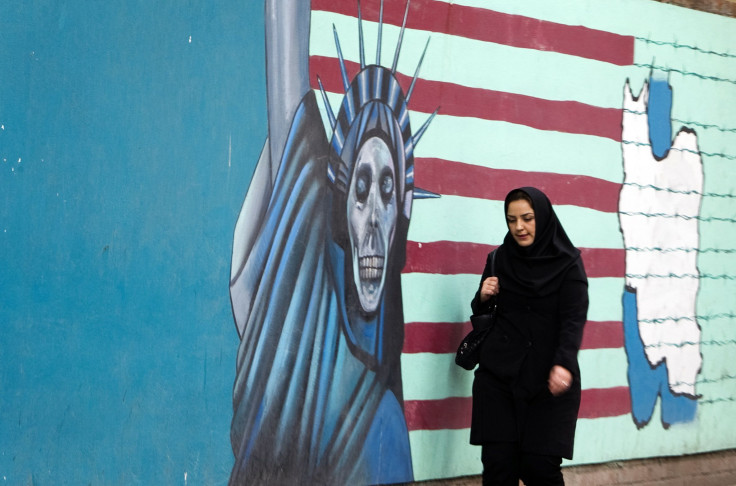Fourth Iranian-American, Businessman Siamak Namazi, Arrested And Jailed In Iran

An Iranian-American businessman based in Dubai was reportedly arrested by Iranian authorities earlier this month while he was visiting a friend in Tehran. The latest arrest takes the total number of Iranian-Americans jailed in Tehran to four, amid indications that hardliners were blocking foreign investors from entering Iran following the nuclear deal.
Siamak Namazi, 40, who was head of strategic planning at UAE-based Crescent Petroleum Co., was stopped from leaving the building where he was visiting a relative in Tehran. His passport was confiscated, the Wall Street Journal reported, citing sources, adding that he was arrested by an intelligence unit of the Revolutionary Guard, which works under Supreme Leader Ayatollah Ali Khamenei, and has been taken to the Evin prison in northwest Tehran. The State Department has yet to confirm Namazi’s arrest, but said it had been alerted about the possible arrest of a U.S. citizen in Iran.
“We’re aware of recent reports of the possible arrest in Iran of a person reported to have U.S. citizenship,” State Department deputy spokesman Mark Toner said, according to the Washington Post, adding: “We’re looking into these reports and don’t have anything further to provide at this time.”
Charges against Namazi were not made clear and it was not clear why he was arrested, the Post reported, citing a source. Namazi was reportedly a strong supporter of the U.S.-Iran nuclear deal and getting sanctions against the country lifted, according to the Journal. He also argued openly that the international sanctions against Iran affect citizens in the country on a day-to-day basis, including while buying Western medicines.
The Namazi family was also in the middle of efforts to connect Iran with other economies in the world. The family owns Atieh group, a conglomerate that includes consultancies to advise foreign companies entering Iranian market. Namazi was a partner in an Atieh consultancy until 2007.
The Journal also cited sources to say that Namazi’s arrest dampened interests to invest money in Iran among the business community as such arrests negate President Hassan Rouhani’s claims that the country has changed after the deal.
“Everyone is now hitting the pause button,” an Iranian businessman in London said, according to the Journal, adding: “If they don’t want the benefit of our knowledge, money and network, then that’s fine. We will take our business elsewhere.”
Analysts believe that the Iranian market is expected to remain uncertain for foreign companies and Iranian-American investors. “There is an internal war in Iran,” Karim Sadjadpour, Iran expert for Carnegie Endowment for International Peace, said according to the Journal, adding: “The Rouhani government encourages diaspora Iranians to come back and invest in Iran, but they cannot—and often will not—do anything for them when they’re harassed or detained by the Revolutionary Guards.”
A report by the Post said that the arrest could be particularly tricky for Namazi as Iran does not identify dual citizenship. The other three Iranian-Americans arrested in Iran are Washington Post correspondent Jason Rezaian, former Marine Amir Hekmati of Flint, Michigan, and Saeed Abedini, a pastor from Boise, Idaho.
Rezaian has been in custody for over a year and was recently convicted of espionage. Hekmati, has been held since 2011 after he was accused of being a spy when he was visiting his grandmother, while Abedini was accused of threatening the country’s national security by participating in home churches. All the three arrested have denied the allegations.
“The new generation must be made to feel that no matter how much time elapses they will be welcomed and treated with respect in the land of their parents,” Namazi had written in an opinion piece in 1998 in The Iranian, a local news website, adding: “If you really want us back to help rebuild the country, if you want our children to maintain a bond to the land of their parents, stop treating us like criminals,” the Post reported.
In another opinion piece in 2013, Namazi reportedly wrote in the New York Times: “The West must relax and rationalize the terms of its sanctions regime against Iran to allow more medical goods into the country,” adding, according to the Post: “If it doesn’t, more Iranian men, women and children will suffer needlessly.”
© Copyright IBTimes 2024. All rights reserved.






















